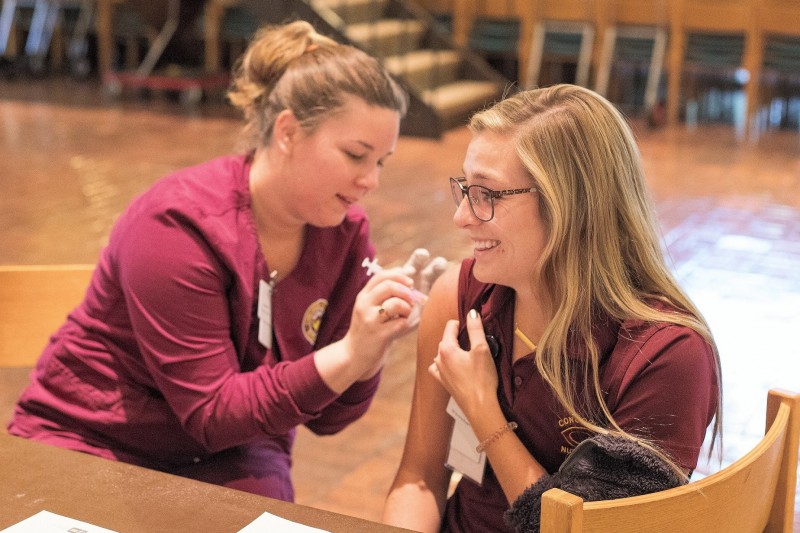Concordia
Concordia students will be prepared to face life’s unscripted challenges and thoughtfully influence the affairs of the world.
Learn More
directions | campus map
Nursing is one of the Fine Arts; I had almost said, the finest of Fine Arts. Florence Nightingale
The Accelerated BSN prepares students with the essential knowledge and skills to care for diverse populations in an era of increasingly complex healthcare. Our partnerships provide students with 600 hours of critical clinical practice in a variety of settings. We retain a ratio of one faculty to eight students in all clinical settings to provide direct supervision and mentorship.
Concordia's nursing program contracts with over 15 clinical agencies and organizations in and around the Fargo-Moorhead area. Students benefit from our strong relationships in the community.
Some of these include:
Sanford Health
Essentia Health
V. A. Health Care Systems
Churches United for the Homeless
Family HealthCare Center
Fargo Cass Public Health
Hospice of the Red River Valley
New Life Center
Prairie St. John's

Classroom Instruction includes lectures, small and large group discussion, case studies, guest speakers, and interactive instruction.
The clinical team supervises and evaluates students' skills daily and at the end of each rotation. The team serves as mentors during patient and family engagement.
The simulation lab promotes competence and elevates confidence in direct patient care skills. Students practice and demonstrate basic foundational skills and receive feedback as they prepare for direct patient care.
Students complete a variety of healthcare clinical rotations in specialties areas across the lifepan. The clinical team works with students to provide high-quality patient care and family education. Each clinical shift includes debriefing with a clinical team member.
Community-based organizations provide students with experiences in public health, home health, hospice, shelters, a homeless clinic, outpatient programs, and faith communities. Students engage in assessments, screenings, and participate in health fairs and the campus flu clinic.
The nursing faculty at Concordia are experienced instructors and strong, consistent advisors.
meetConcordia students will be prepared to face life’s unscripted challenges and thoughtfully influence the affairs of the world.
Contact the admission team at AccelNursing@cord.edu with questions about the Accelerated BSN.
Explore what the Fargo-Moorhead community has to offer! Information about lodging, dining and things to do.